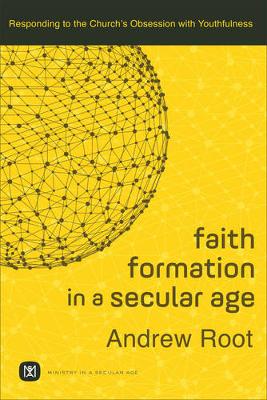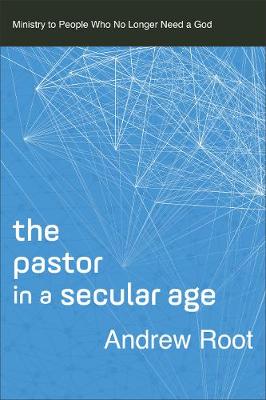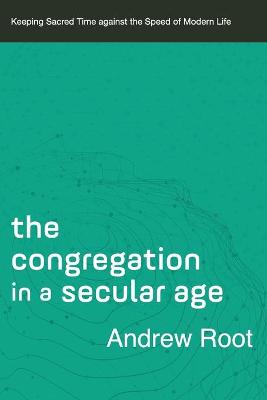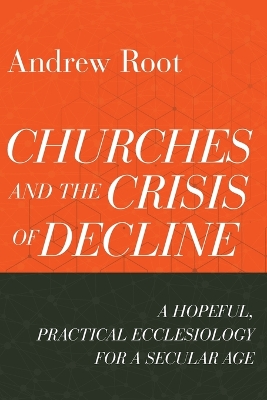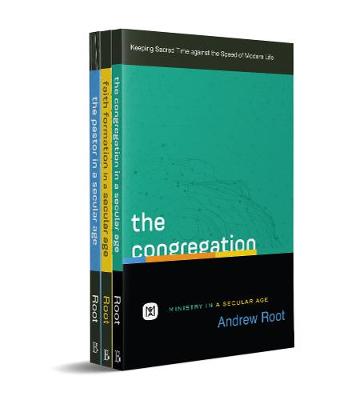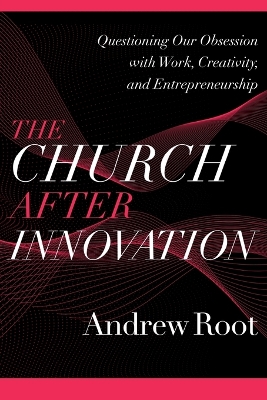Ministry in a Secular Age
4 primary works • 6 total works
Book 1
The loss or disaffiliation of young adults is a much-discussed topic in churches today. Many faith-formation programs focus on keeping the young, believing the youthful spirit will save the church. But do these programs have more to do with an obsession with youthfulness than with helping young people encounter the living God?
Questioning the search for new or improved faith-formation programs, leading practical theologian Andrew Root offers an alternative take on the issue of youth drifting away from the church and articulates how faith can be formed in our secular age. He offers a theology of faith constructed from a rich cultural conversation, providing a deeper understanding of the phenomena of the "nones" and "moralistic therapeutic deism." Root helps readers understand why forming faith is so hard in our context and shows that what we have lost is not the ability to keep people connected to our churches but an imagination for how and where God could be present in their lives. He considers what faith is and what steps we can take to move into it, exploring a Pauline concept of faith as encounter with divine action.
Questioning the search for new or improved faith-formation programs, leading practical theologian Andrew Root offers an alternative take on the issue of youth drifting away from the church and articulates how faith can be formed in our secular age. He offers a theology of faith constructed from a rich cultural conversation, providing a deeper understanding of the phenomena of the "nones" and "moralistic therapeutic deism." Root helps readers understand why forming faith is so hard in our context and shows that what we have lost is not the ability to keep people connected to our churches but an imagination for how and where God could be present in their lives. He considers what faith is and what steps we can take to move into it, exploring a Pauline concept of faith as encounter with divine action.
Book 2
In Faith Formation in a Secular Age, the first book in his Ministry in a Secular Age trilogy, Andrew Root offered an alternative take on the issue of youth drifting away from the church and articulated how faith can be formed in our secular age. In The Pastor in a Secular Age, Root explores how this secular age has impacted the identity and practice of the pastor, obscuring his or her core vocation: to call and assist others into the experience of ministry. Using examples of pastors throughout history--from Augustine and Jonathan Edwards to Martin Luther King Jr. and Nadia Bolz-Weber--Root shows how pastors have both perpetuated and responded to our secular age. Root turns to Old Testament texts and to the theology of Robert Jenson to explain how pastors can regain the important role of attending to people's experiences of divine action, offering a new vision for pastoral ministry today.
Book 3
Academy of Parish Clergy 2022 Top Ten Book for Parish Ministry
Churches often realize they need to change. But if they're not careful, the way they change can hurt more than help.
In this culmination of his well-received Ministry in a Secular Age trilogy, leading practical theologian Andrew Root offers a new paradigm for understanding the congregation in contemporary ministry. He articulates why congregations feel pressured by the speed of change in modern life and encourages an approach that doesn't fall into the negative traps of our secular age.
Living in late modernity means our lives are constantly accelerated, and calls for change in the church often support this call to speed up. Root asserts that the recent push toward innovation in churches has led to an acceleration of congregational life that strips the sacred out of time. Many congregations are simply unable to keep up, which leads to burnout and depression. When things move too fast, we feel alienated from life and the voice of a living God.
The Congregation in a Secular Age calls congregations to reimagine what change is and how to live into this future, helping them move from relevance to resonance.
Churches often realize they need to change. But if they're not careful, the way they change can hurt more than help.
In this culmination of his well-received Ministry in a Secular Age trilogy, leading practical theologian Andrew Root offers a new paradigm for understanding the congregation in contemporary ministry. He articulates why congregations feel pressured by the speed of change in modern life and encourages an approach that doesn't fall into the negative traps of our secular age.
Living in late modernity means our lives are constantly accelerated, and calls for change in the church often support this call to speed up. Root asserts that the recent push toward innovation in churches has led to an acceleration of congregational life that strips the sacred out of time. Many congregations are simply unable to keep up, which leads to burnout and depression. When things move too fast, we feel alienated from life and the voice of a living God.
The Congregation in a Secular Age calls congregations to reimagine what change is and how to live into this future, helping them move from relevance to resonance.
Book 4
Congregations often seek to combat the crisis of decline by using innovation to produce new resources. But leading practical theologian Andrew Root shows that the church's crisis is not in the loss of resources; it's in the loss of life--and that life can only return when we remain open to God's encountering presence.
This new book, related to Root's critically acclaimed Ministry in a Secular Age project, addresses the practical form the church must take in a secular age. Root uses two stories to frame the book: one about a church whose building becomes a pub and the other about Karl Barth. Root argues that Barth should be understood as a pastor with a deep practical theology that can help church leaders today.
This book pushes the church to be a waiting community that recognizes that the only way for it to find life is to stop seeing the church as the star of its own story. Instead of resisting decline, congregations must remain open to divine action. Root offers a rich vision for the church's future that moves away from an obsession with relevance and resources and toward the living God.
This new book, related to Root's critically acclaimed Ministry in a Secular Age project, addresses the practical form the church must take in a secular age. Root uses two stories to frame the book: one about a church whose building becomes a pub and the other about Karl Barth. Root argues that Barth should be understood as a pastor with a deep practical theology that can help church leaders today.
This book pushes the church to be a waiting community that recognizes that the only way for it to find life is to stop seeing the church as the star of its own story. Instead of resisting decline, congregations must remain open to divine action. Root offers a rich vision for the church's future that moves away from an obsession with relevance and resources and toward the living God.
Andrew Root's well-received Ministry in a Secular Age trilogy offers a developed practical theology that uniquely attends to divine action. The three volumes engage with Charles Taylor's articulation of our cultural context and the challenge he raises for Christian life in a Western world that has found divine action increasingly unbelievable. This project provides not only a needed and deep dialogue with the issues Taylor presents but also offers a constructive vision for confronting Taylor's challenge.
In Faith Formation in a Secular Age, Root provides an alternative take on the issue of youth drifting away from the church and articulates how faith can be formed in our secular age.
Through an abundance of examples, The Pastor in a Secular Age explores how pastors have both perpetuated and responded to our secular age, and provides a new vision for pastoral ministry today.
The Congregation in a Secular Age articulates why it is so hard for congregations to change and encourages an approach that doesn't fall into the negative traps of our secular age.
In Faith Formation in a Secular Age, Root provides an alternative take on the issue of youth drifting away from the church and articulates how faith can be formed in our secular age.
Through an abundance of examples, The Pastor in a Secular Age explores how pastors have both perpetuated and responded to our secular age, and provides a new vision for pastoral ministry today.
The Congregation in a Secular Age articulates why it is so hard for congregations to change and encourages an approach that doesn't fall into the negative traps of our secular age.
Churches and their leaders have innovation fever. Innovation seems exciting--a way to enliven tired institutions, embrace creativity, and be proactive--and is a superstar of the business world. But this focus on innovation may be caused by an obsession with contemporary relevance, creativity, and entrepreneurship that inflates the self, lacks theological depth, and promises burnout.
In this follow-up to Churches and the Crisis of Decline, leading practical theologian Andrew Root delves into the problems of innovation. He explores where innovation and entrepreneurship came from, shows how they break into church circles, and counters the "new imaginations" like neoliberalism and technology that hold the church captive to modernity. Root reveals the moral visions of the self that innovation and entrepreneurship deliver--they are dependent on workers (and consumers) being obsessed with their selves, which leads to significant faith-formation issues. This focus on innovation also causes us to think we need to be singularly unique instead of made alive in Christ. Root offers a return to mysticism and the poetry of Meister Eckhart as a healthier spiritual alternative.
In this follow-up to Churches and the Crisis of Decline, leading practical theologian Andrew Root delves into the problems of innovation. He explores where innovation and entrepreneurship came from, shows how they break into church circles, and counters the "new imaginations" like neoliberalism and technology that hold the church captive to modernity. Root reveals the moral visions of the self that innovation and entrepreneurship deliver--they are dependent on workers (and consumers) being obsessed with their selves, which leads to significant faith-formation issues. This focus on innovation also causes us to think we need to be singularly unique instead of made alive in Christ. Root offers a return to mysticism and the poetry of Meister Eckhart as a healthier spiritual alternative.
